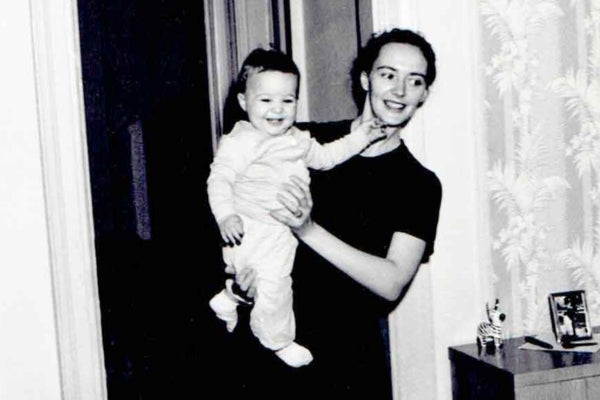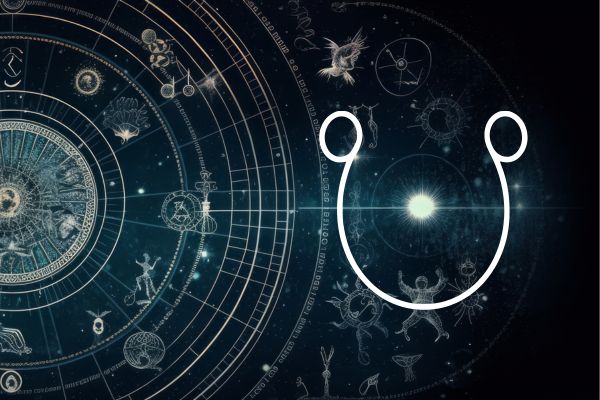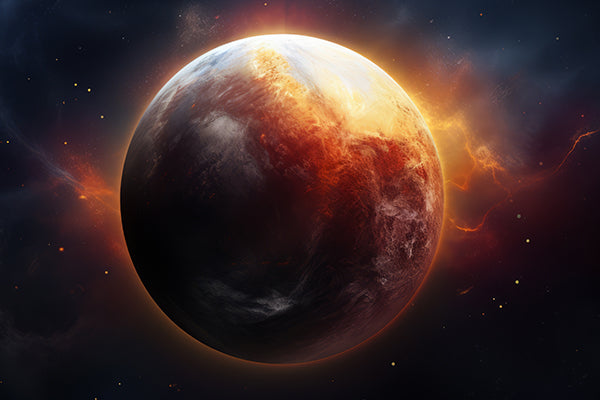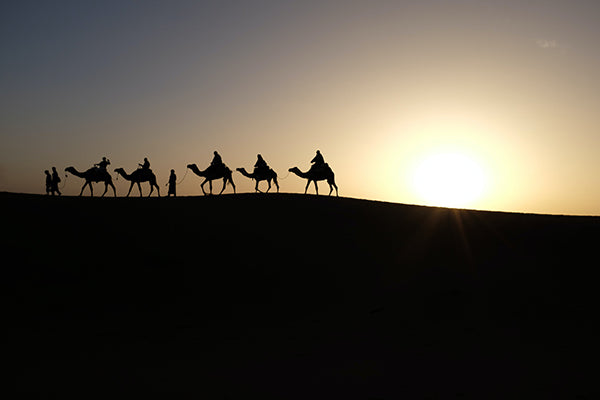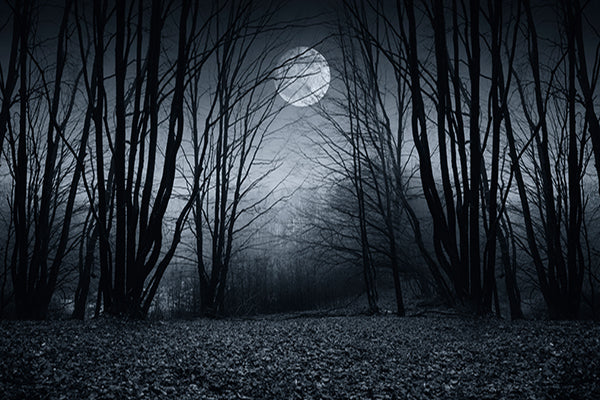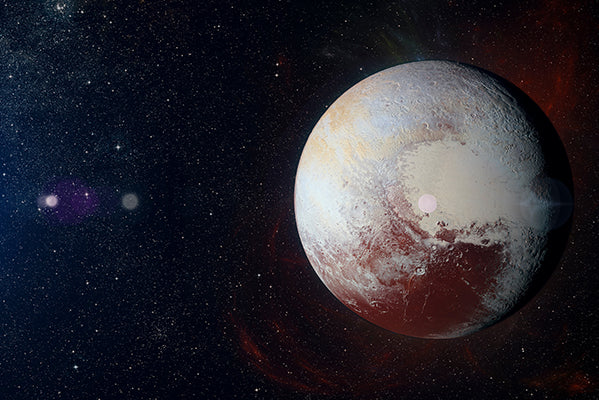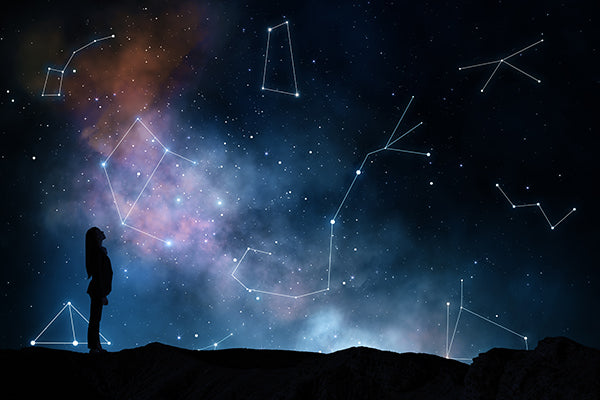There’s a fellow named Luis Gonzales Serra in Spain who has translated many of my books into Spanish. They’ve never been published – Luis does the translations simply as a way of studying them carefully. That’s dedication!
(By the way, if anyone out there has connections with Spanish language publishing, I could happily put you in touch with Luis. It’s one of the mysteries of my life that while my work is available in at least a dozen languages, it’s never appeared, at least legally, in Spanish, even though that’s the nearest thing I personally have to a second language.)
Luis sent me an interesting question in December. Here are his words:
"You have already devoted a book (The Night Speaks) to dismantling the scientific objections to Astrology, which I translated, with greater or lesser artistry. Perhaps it would be good for you to devote at least one newsletter to dismantling the religious objections to Astrology."
Let me begin responding to Luis by saying that religious objections to astrology are far from universal, even within the Judeo-Christian framework. I’d also like to say that those Judeo-Christian traditions are what I will mostly be talking about here, although as we explore Old Testament issues, they overlap with Islam as well. Generally speaking, the Asian religious traditions have been friendlier to astrology than the western ones.
Cutting to the chase, what we will be discovering as I explore this potential minefield isn't that the Bible is pro-astrology or anti-astrology, but rather that it is totally ambivalent about the subject. We will also address the issue that Luis sees so clearly – and something that most of the rest of us have experienced very directly too: that mainstream religious people are often phobic about astrology and convinced of its Satanic origins.
So is it impossible to simultaneously be a Christian and a Gemini? That is the question.
By the way, in the Biblical quotes that follow, I’m using the King James version. It’s far from the most scholarly of the many Bible translations that exist, but it’s probably the one whose language has sunk deepest into the bones of English-speaking culture.
Even people who’ve never been inside a church or a temple are familiar with this chilling line from the Book of Exodus, chapter 22, verse 18: “Thou shalt not suffer a witch to live.” Most of us would debate whether astrologers are witches, but to the folks piling the wood around the stake, the distinction seems to be rather moot. Astrology and witchcraft are often lumped together. Accused that way, we astrologers might get off on a technicality – we’re not necessarily all witches, although let me be the first to say that Wiccan people are welcome at our table, so maybe we’re guilty by association.
We don’t have a leg to stand on with Isaiah 47:11-14. Here is the text in all it’s raging King James judgment and sonorous glory:
"Therefore shall evil come upon thee; thou shalt not know from whence it riseth: and mischief shall fall upon thee; thou shalt not be able to put it off: and desolation shall come upon thee suddenly, which thou shalt not know. Stand now with thine enchantments, and with the multitude of thy sorceries, wherein thou hast laboured from thy youth . . . Thou art wearied in the multitude of thy counsels. Let now the astrologers, the stargazers, the monthly prognosticators, stand up, and save thee from these things that shall come upon thee. Behold, they shall be as stubble; the fire shall burn them; they shall not deliver themselves from the power of the flame."
Those lines are about as explicit as they come, and they obviously condemn astrology by name. With Isaiah, we astrologers have no wiggle room at all – and religious astrology-bashers love to quote those baleful lines.
But here’s another Bible story. This one is from chapter 2 of the Book of Daniel. Scholars think it was written around 165 B.C. For perspective, it’s helpful to realize that the Book of Isaiah comes from a very different time. It was probably written around 740 to 700 B.C. That’s almost six centuries earlier. The passage is long and wordy, so I’m going to summarize it here, only using some critical lines from Daniel itself. The story starts out during the time when the Jewish people were held in captivity in Babylon. King Nebuchadnezzar has a troubling dream. He summons “the magicians, and the astrologers, and the sorcerers” to interpret the dream for him. They all fail. “For this cause the king was angry and very furious, and commanded to destroy all the wise men of Babylon.”
The prophet Daniel, who was also held in captivity, “went in unto Arioch, whom the king had ordained to destroy the wise men of Babylon: he went and said thus unto him; Destroy not the wise men of Babylon: bring me in before the king, and I will shew unto the king the interpretation.”
Daniel of course succeeds. Nebuchadnezzar is impressed. “Then the king made Daniel a great man, and gave him many great gifts, and made him ruler over the whole province of Babylon, and chief of the governors over all the wise men of Babylon.”
Note how here Daniel defends the astrologers. He actually saves them, and later even becomes “their governor.” In this context, of course Daniel represents virtue – the “word of God,” so to speak. And he stands up for the “magicians, and the astrologers, and the sorcerers.” This is obviously miles away from the attitude reflected in Isaiah.
Next comes what to me is the most important Biblical reference of them all. Everything literally begins with the Book of Genesis. When was it written? There doesn’t seem to be a good answer for that question.
Traditionally, Genesis was written by Moses himself back around the time the Hebrew people were being released from bondage in Egypt. That would put it around 1400 B.C. Likely, at least some of it goes back that far, or perhaps even farther in oral traditions. The Book of Genesis appears to have been cobbled together from various sources and to bear the signatures of many different times. Still, a great many of us know the sonorous opening lines of the book – and really of the entire Bible: “In the beginning, God created the heaven and the earth.” By the time we get barely into it, just at verse 14, we read: “And God said, Let there be lights in the firmament of the heaven to divide the day from the night; and let them be for signs, and for seasons, and for days, and years.”
And “let them be for signs” – that’s a clear reference to messages from God that are woven into the stars and planets! I’d challenge any Fundamentalist railing against our craft to try to separate those words from the most basic definition of astrology. And there it is, an affirmation of astrology as part of natural law, less than 300 words into the Bible. It is simply taken for granted.
Let’s move on to the New Testament. All of us raised in the Christian tradition – and many of us who weren’t – know the story of the “three wise men” visiting Jesus at his birth. In the second chapter of the Book of Matthew we read, “Now when Jesus was born in Bethlehem of Judaea in the days of Herod the king, behold, there came wise men from the east to Jerusalem, saying, Where is he that is born King of the Jews? For we have seen his star in the east, and are come to worship him.”
For this next step, I need you to visualize something with me. Picture the eastern Mediterranean world, where all these Bible stories originate. Basically you’re looking at a horseshoe standing on its side, with its open side facing left, or west. That’s the Mediterranean sea. Almost all of the action in the Bible occurs on dry land to the right of the horseshoe. (Bethlehem is only 33 miles from the coast.) According to Matthew, the wise men were ‘from the east’ -- that means further to the right on our map.
Here’s the point – and I’ve got to say I’m kind of shocked I’ve never heard anybody else talk about it. If those wise men were already from somewhere east of Bethlehem and they followed a star “in the east,” they would have been heading for China, not Bethlehem!
So what’s really going on here? What I say now is pure speculation on my part. It may be entirely wrong. But astrologers know that a planet conjunct the Ascendant of a chart has enormous power. Such a planet is literally “in the east” – it’s rising, in other words, just like the Sun rises in the morning. Does the Book of Matthew contain a vague reference to some forgotten astrological chart which these wise men had consulted? Were they not literally physically “traveling eastward to follow a star” – but rather following instructions in what astrologers today might call an horary chart?
As I say, this is all speculative. We don’t have much to go on. But here’s Exhibit B, straight from the Book of Matthew, this time chapter 2, verse 7: “Then Herod, when he had privily called the wise men, enquired of them diligently what time the star appeared.”
Of all Herod’s possible questions, why that one? Faced with a world-shaking moment, who but an astrologer would press anyone about exactly what time something happened? Herod – who so far as we know was not an astrologer – lived in a culture so immersed in astrology that he knew that was the right question to ask, that is, if we are talking about a chart which he wanted to reproduce.
So where are we left in all of this? Confused might be the best answer. The point is that if we search the Bible without prejudice for its view of astrology, we find a diversity of opinions about it. The basic validity of astrology is often simply taken for granted, but the whole question stays in the background – the Bible never mentions that gravity pulls things downward or that cats chase mice either. Again, planetary influence is simply accepted as an obvious part of life that doesn’t need to be argued.
There are abundant cautions about the abuse of astrology – most of them well-taken, in my opinion. I actually believe that’s really what those lines in Isaiah are all about. But is astrology itself condemned? We do see Isaiah’s vociferous damning of how people were using astrology, but it’s juxtaposed with Daniel’s defense of the astrologers. I believe we even see pious and very skillful astrologers predicting the birth of Jesus – and perhaps more importantly, the story itself making it into the Gospel of Matthew. And then right in the opening lines of the Bible, we see the simple affirmation that “the stars” are there for signs.
So why is there such a vigorous contempt for astrology among many religiously-conservative people? The truth is that this cultural vitriol derives less from what is actually in the Bible and more from later developments in Christian theology. In a nutshell, Jesus came and went, but then the bureaucrats arrived and, mostly for political reasons, they didn’t like astrology.
This part of my little essay could get lengthy and tedious. I don’t want to do that, so I will spare you the details – they are available online or in libraries if you are interested. Suffice to say that early Christianity was very diverse. The book that we call “The Bible” was not fully assembled, more or less as we know it today, until the Council of Hippo in 397 A.D. Before that, the situation was more like anyone today speaking of “spiritual literature in modern publishing” – then as now, it was a mixture of books, diverse teachers, and contradictory ideas.
There are actually astrological references in the Dead Sea scrolls, for example – they’re largely Christian writings and might easily have gotten into the Bible except that they had been lost, buried in a cave until recent times. Gnosticism in particular was a very astrological philosophy, dating from a bit earlier than Jesus’ time, but it soon blended vigorously with Christianity. It was viewed as a heresy by the people – mostly Romans – who eventually won the subsequent theology wars. In the battle against Gnosticism, astrology became a sort of “litmus test,” and the pro-astrology voices were the losers.
Perhaps most importantly, let’s meet Saint Augustine. He codified and rationalized Christianity into a logical intellectual system that could be taught and administered – and against which we could judge other people’s worthiness of salvation or damnation. Augustine realized that, from a purely logical perspective, belief in free will was even more pivotal than Jesus in terms of creating a coherent Christian theology. If the planets controlled our behavior, there could be no free will. No one could choose between “Jesus or the Devil” – not if the planets made the choice for them. So astrology had to go.
I remember learning about all of this fifty years ago as I was earning my degree in Religion at the University of North Carolina. I remember being heartily shocked to discover that I agreed with Saint Augustine – I was with him in thinking that any form of purely deterministic astrology was antithetical to personal responsibility, and thus stood against the conscious, intentional evolution of the soul.
Did my belief in human freedom tempt me to give up astrology? Not for a minute – but it did light the fire of evolutionary astrology in me. I believe that today, even though many of the people who rail against astrology couldn't even spell “Saint Augustine,” that much of the religious resistance to astrology stems from his attitude and his profound influence on church teachings – many of which are actually not rooted in the Bible itself at all.
Augustine lived three or four centuries after Jesus’s time, around the time the “official” Bible was being compiled. By the time that his serious cautions about “blaming the planets” for our sins filtered down to the masses, his theological reasoning had been stripped down to the folk belief that astrology was the work of the devil. Those masses were already piling wood around their witch-burning stakes. And they still are.
If only they would read the Book of Daniel . . .
Listen to the podcast version
Facebook Comments

